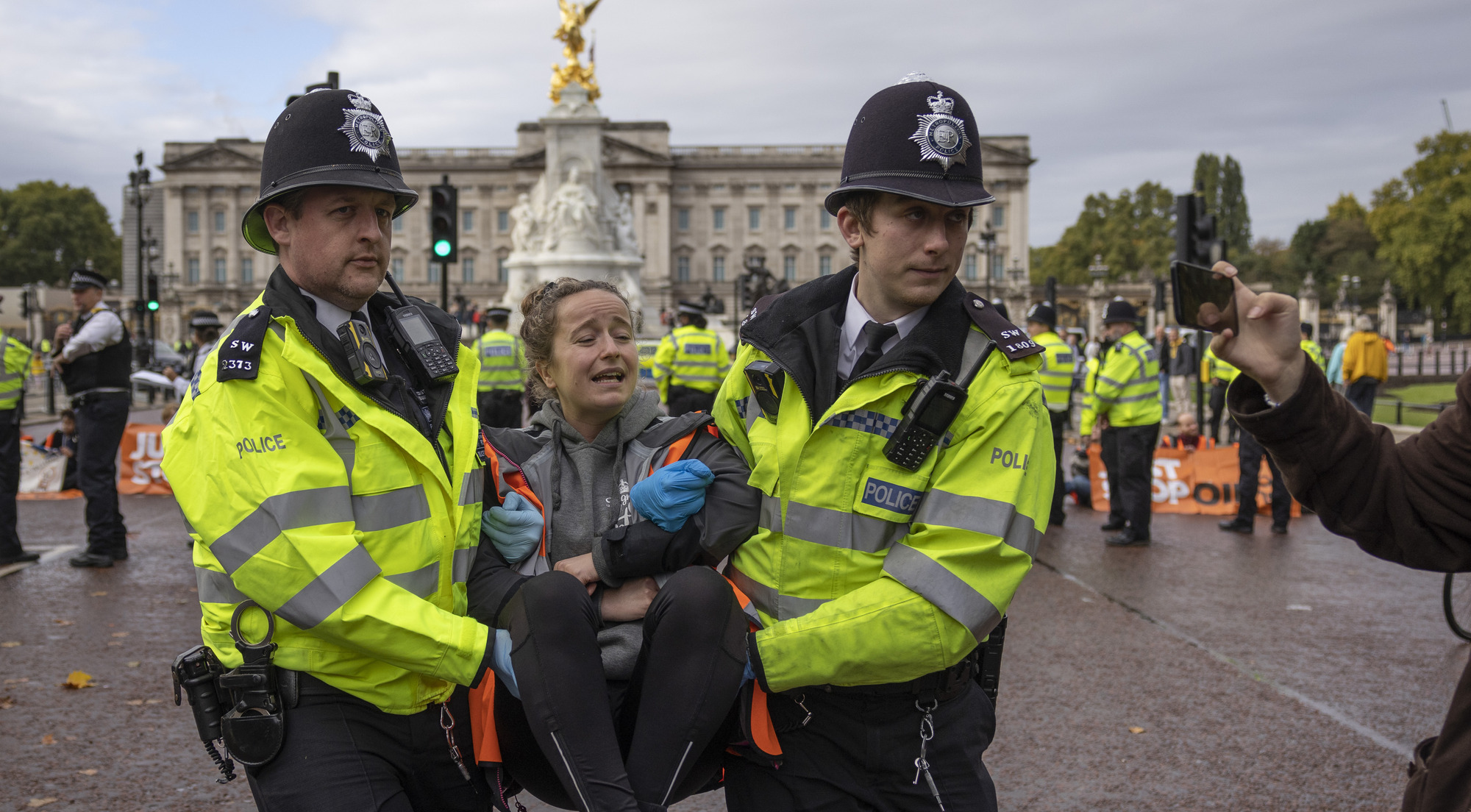You don’t have to smash things up to draw attention to your political cause. Hundreds of thousands marching against the war in Gaza in recent months, or against the ban on fox-hunting 20 years ago, have managed to raise much awareness without resorting to paint and hammers. But some protestors — perhaps those whose causes lack the numbers for media attention otherwise — find that criminal damage helps.
It helps draw attention to the protest, but it helps even more if the protesters are later acquitted by a jury. “Look,” they can say. “Even these randomly selected members of the public agree with us!”
The Court of Appeal’s clarification this week that protesters’ beliefs about climate change cannot be used to justify criminal damage was met with dismay from the activist community. Just Stop Oil responded by threatening revolution, while barrister-cum-protestor Paul Powlesland criticised the judiciary for “clinging to outdated concepts of causation”. But the change will likely have little impact on the activities of protestors, or even on their conviction rates.
Section 5(2)(a) of the Criminal Damage Act 1971 provides a defence JSO protesters sometimes use. It allows for defendants who believe that the person they thought was entitled to give consent would have consented, had they known of “the damage and its circumstances”. The provision is there to protect people such as Beverley Jaggard, who in 1978, after a good few drinks, returned to the house in which her friend had let her stay and, finding that the lock wouldn’t open, smashed a window to gain entry. She had got the wrong house of course, but she wasn’t held criminally liable — because she genuinely believed her friend would have condoned her actions.
Climate protestors have used this provision, with occasional success, by arguing that they genuinely believed that the owner of the bank, or whatever it might be, would have allowed the damage if only they understood the severity of the climate crisis and the purpose of the protest — these last things being, the protestors contend, part of “the circumstances” mentioned in section 5(2)(a).
This is obviously silly. A protestor cannot genuinely believe that the relevant CEO, even having received a days-long lecture from the most persuasive of the orange-vested pensioners, would have permitted them to take a hammer to their nice glass-fronted HQ.
But if it’s obviously silly, why have some judges left it up to the jury, rather than telling them to ignore it? Well, the Crown has to prove that the defence does not apply; so if there’s even a small chance that the jury will think a defendant’s claimed belief might have been genuine, it’s not crazy for a judge to leave that factual issue for them to decide. “Circumstances” is vague, and previous rulings about when a paper-thin defence can be withdrawn from a jury were inconsistent. The Court of Appeal has now clarified two things: “circumstances” includes the fact the protest was about climate change but no more detail than that, and a judge may withdraw a defence if no reasonable and properly directed jury could acquit on the basis of it.
So there will be less of this, but not none. For one thing, judges can still choose to leave the decision to the jury, when a defendant claims the relevant belief. But, more significantly, juries can still acquit in the face of the evidence. It’s a grey area — particularly on what a defendant is permitted to say to a jury about the supposed “right” to acquit — but a judge cannot order a conviction, and a defendant or his barrister will always be allowed to invite a jury to acquit.
That is, I believe, as it should be. The jury, and its power to acquit without giving reasons, is too important a bulwark against (future) state oppression to be tampered with — particularly for the sake of a handful of climate activists who are seldom punished harshly and for whom a conviction is, in many cases, a badge of honour.
Climate protestors derive what support they have by tapping into the widespread fear of climate change, popular feelings of doom more generally, and of course economic dissatisfaction. But they also benefit hugely from the extreme low status of anti-JSO sentiment. Do people really think that chucking paint around at the Chelsea Flower Show will benefit the climate in some roundabout way? Or do they just not want others to associate them with Nigel Farage?
“I think they have a point,” some say, without knowing of JSO’s opposition to carbon capture investment or the downsides of Net Zero. Ultimately, the best place to challenge climate protesters’ disruptive activities will be in the court of public opinion — and that campaign has a long way to go.











Join the discussion
Join like minded readers that support our journalism by becoming a paid subscriber
To join the discussion in the comments, become a paid subscriber.
Join like minded readers that support our journalism, read unlimited articles and enjoy other subscriber-only benefits.
Subscribe